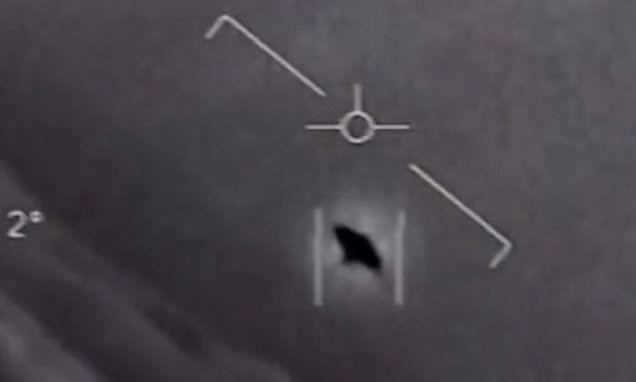Hey have any of you armchair theologians read Michael Heiser's work in the Unseen Realm? If you have, what did you think?
Amazon product ASIN 1683592719
Amazon product ASIN 1683592719
I have the book, and read about 1/4 of it so far. Good stuff.
I find it very odd that there are a lot of 'experts' that claim the "sons of Elohim" before the Flood are really the "sons of Seth".
I have the book, and read about 1/4 of it so far. Good stuff.
I find it very odd that there are a lot of 'experts' that claim the "sons of Elohim" before the Flood are really the "sons of Seth".
I have the book, and read about 1/4 of it so far. Good stuff.
I find it very odd that there are a lot of 'experts' that claim the "sons of Elohim" before the Flood are really the "sons of Seth".



Every time I think this guy is too short to be the Antichrist. He makes me reconsider.
Brother,@AgEngDawg or others
Anyone have a good legit end time prophecy primer video with explanations of the 3rd temple, Antichrist, timelines etc? I have been watching Sling and Stone and a few others. I have heard an overwhelming amount of info but I hope there is someone out there putting it all together. I realize this is maybe not an easy ask.
Y’all pointed me to Expedition Bible (thanks!) which connects biblical history to actual locations and gives context. It might well be my favorite YouTube channel right now.


Brother,
If you want a deep dive. I got your hook up. I mean deep dive. John MacArthur and I agree on about 95% of stuff. He is a great source.
Start with this first video:
Then go to Grace To You and start with the sermons starting in Revelation 6. The main action starts in Revelation 6.

You can chew on that forever. Along with this:

The History of the Future
Such a wonderful theme in the music this morning, everything about the Lord being our refuge and our security and our Savior and our leader—all...www.gty.org

I might get that book Thank you for SharingHey have any of you armchair theologians read Michael Heiser's work in the Unseen Realm? If you have, what did you think?
Amazon product ASIN 1683592719
I have the book, and read about 1/4 of it so far. Good stuff.
I find it very odd that there are a lot of 'experts' that claim the "sons of Elohim" before the Flood are really the "sons of Seth".
I find your writings to be beneficial. Have you ever read the book The Two Seeds of Genesis 3: 15 by Dan Gayman?I believe it's of great importance to understand Daniel's 70 week prophecy. I'll attempt to use the bible to see what it says as to when the exact date of the Tribulations starts, the length of time it will be and the time of the rapture aka the harvest of the wheat and burning of the tares.
We already know YHWH is a white racist, supremacist, sexist, nationalist, homophobe, transphobe, etc in accordance to the scriptures. Basically all Jew (Edomite/Canaanite) made up terms to make YHWH and his sheep appear evil and degeneracy appear as good. 1,
Once the tribulation starts the sheep will no longer have the freedom or be very restricted in having the ability to pass on the truth to all people. Furthermore, after the rapture it will become extremely difficult to receive salvation. Your only hope is to be a Martyr or survive the entire tribulations and make it into the 1,000 year Kingdom of Christ and then make it into heaven based on your works because you have seen Yashua so faith alone can no longer save you.
The 1,000 year kingdom is where there will be peace on earth, no killing, no eating of animal flesh or animal products, no degeneracy. The 1,000 year Kingdom deserves it's own deep dive as it's referenced more than any other topic in the bible.
Here are the future topics I would like to create large posts on:
1.) Daniel's 70 week prophecy: Foundational knowledge but not much writings.
This is important to know precisely what's coming, how and when it will happen and how to survive and make it to the next life.
2.) Proof the Israelites are white Caucasians: Completed 90% of the writing.
Your race is incredibly important, to know you're a descendant of the genetic children of our creator YHWH allows us to know what gifts and promises we can receive and what we must do to receive those promises. To know who we are along with our history enables us to know where we are supposed to be going and guidelines on how to arrive in this beautiful future.
The God Pill is the pill of all pills to know that our creator is a white nationalist, supremacist, racist, homophobe, Islamophobe, transphobe, sexist, etc and all the other made up Jew terms is truth that shall set you free. There's a reason why these terms all are intended to directly attack straight white Israelites/Christians.
3.) 1,000 year reign of Christ and what it entails and how one can enter this kingdom: Foundational knowledge and some writings.
This 1,000 year Kingdom is essentially what the Garden of Eden and our original bodies were supposed to be a perfect image of YHWH in paradise and peace on earth. It is the 7th day of rest for YHWH and 7,000 years for us humans. It is the final fulfillment of the last prophecies written in the scriptures. So far over 2,200 of the 2,500 have come true and more shall be fulfilled very soon.
4.) How to receive salvation and walk in the spirit and not in the flesh. How can one receive gifts in the Kingdom of heaven? Knowledge and wisdom but no writings.
Nothing is as important as salvation. Our physical bodies are temporary and even our bodies in the 1,000 year kingdom are temporary. The Kingdom of heaven is eternal. It's the final destination of our journey's. It would be wise to know not only how to get there but how to not go to the opposite place. Also, how can we receive glorious gifts from when we enter heaven. Your fame, fortune, and resources acquired are irrelevant. This satan ran earth puts our focus on those things that are of this world and those who are of this world will never receive salvation.
What is the best path to receive salvation and not be of this world and how can we walk in the spirit and not the flesh?
5.) How to read, interpret, comprehend, digest, decipher the bible. How to implement the teachings into your daily life: Foundational knowledge/wisdom.
I would like to create an SOP (Standard Operating Procedures) on how to read and understand the bible. There are laws, precepts, translations, definitions, bias, etc that we must cover.
I find your writings to be beneficial. Have you ever read the book The Two Seeds of Genesis 3: 15 by Dan Gayman?
Watch the first 15 minutes of this to see how that is not true.
That guy was taking an hour to make a point that is easily disprovable in five minutes. If people didn't do that TLDR stuff, I'd give you the reply to the guy's false claims.
The Bible has literal truths and allegories throughout the various chapters. Gayman's book goes in depth and has 400 + pages refuting that guy's opinion.
A heretic calling the truth heresy is funny. In other words, we don't really want to discuss this issue; you just want to agree with what you falsely believe is true. Got you. No need for a response.Mike Winger is giving you the Biblical answer. Serpent Seed is cult nonsense and it is heretical.
Let's keep the theology good in this thread.
When Jesus said you are of your father the devil. He means everyone that has not been born again. That is what he meant. To try to change that to fit some cult belief is heretical and wrong.A heretic calling the truth heresy is funny. In other words, we don't really want to discuss this issue; you just want to agree with what you falsely believe is true. Got you. No need for a response.
Now I mean no disrespect here, however your argument fails basic logic.When Jesus said you are of your father the devil. He means everyone that has not been born again. That is what he meant. To try to change that to fit some cult belief is heretical and wrong.
Jesus was addressing that to EVERYONE who has not put their faith in Him. That is what He meant.
It's kind of hard to spiritualize the 8th chapter of John and I gave you the opportunity NOT to debate this. Sooo...When Jesus said you are of your father the devil. He means everyone that has not been born again. That is what he meant. To try to change that to fit some cult belief is heretical and wrong.
Jesus was addressing that to EVERYONE who has not put their faith in Him. That is what He meant.
That is nothing but garbage.It's kind of hard to spiritualize the 8th chapter of John and I gave you the opportunity NOT to debate this. Sooo...
1) In John 8th chapter Jesus is speaking to some Judeans (called Jews because of geography.) Some of these Judeans are Pharisees; some are Judahites by birth. In verse 33 the relevancy of this discussion begins with the Pharisees saying they are of the seed of Abraham, but were never in bondage to any man. We're going back to the Old Testament here.
These Pharisees could not be Israelites as both Israel and Judah WERE in bondage. There is a whole chapter in the Bible about it. They were of Abraham's seed because Judah intermarried with a Canaanite named Shuah and had offspring against God's commands not to. (Genesis 38:2)
2) In John 8: 37 and 38 Jesus acknowledges that these Pharisee (Jews by geography) are of Abraham's seed, but they seek to kill him and he then begins talking about two fathers
3) In verse 42 Jesus makes it plain to these Pharisees have a father who is NOT of Abraham. The lineage Jesus is talking about is on the father's side of the family.
4) In verse 44 Jesus makes it plain: "You are of your father the devil and the lusts of your father ye will do. He was a murderer from the beginning, and abode not in the truth, because there is no truth in him. When he speaketh a lie, he speaketh of his own: for he is a liar, and the father of it."
Cain was the father of the Canaanites of which Shuah descended. He (Cain) was a murderer from the beginning - the first murderer. It seems pretty up front to me.
Sounds like you have a monopoly on everything related to the Bible. You don't need a discussion board; you just need a bully pulpit. I told you there was no need to respond. Let it go.That is nothing but garbage.
It's kind of hard to spiritualize the 8th chapter of John and I gave you the opportunity NOT to debate this. Sooo...
1) In John 8th chapter Jesus is speaking to some Judeans (called Jews because of geography.) Some of these Judeans are Pharisees; some are Judahites by birth. In verse 33 the relevancy of this discussion begins with the Pharisees saying they are of the seed of Abraham, but were never in bondage to any man. We're going back to the Old Testament here.
These Pharisees could not be Israelites as both Israel and Judah WERE in bondage. There is a whole chapter in the Bible about it. They were of Abraham's seed because Judah intermarried with a Canaanite named Shuah and had offspring against God's commands not to. (Genesis 38:2)
2) In John 8: 37 and 38 Jesus acknowledges that these Pharisee (Jews by geography) are of Abraham's seed, but they seek to kill him and he then begins talking about two fathers
3) In verse 42 Jesus makes it plain to these Pharisees have a father who is NOT of Abraham. The lineage Jesus is talking about is on the father's side of the family.
4) In verse 44 Jesus makes it plain: "You are of your father the devil and the lusts of your father ye will do. He was a murderer from the beginning, and abode not in the truth, because there is no truth in him. When he speaketh a lie, he speaketh of his own: for he is a liar, and the father of it."
Cain was the father of the Canaanites of which Shuah descended. He (Cain) was a murderer from the beginning - the first murderer. It seems pretty up front to me.
I don’t think so. I think it will be a small implant and will be tied to a digital ID and digital currency, passport, social credit score, etc. You cannot participate in society without it and if you do not do exactly as told you’ll be locked out of society as well.Are the Vaccines/ CV PCR tests the mark of the beast? Do they meet all the requirements to be considered the mark of the beast? Well not quite but it's still potentially possible. It would have to be 3.5 years into the tribulation when they become required to buy sell or trade and eventually one must have the mark or die.
